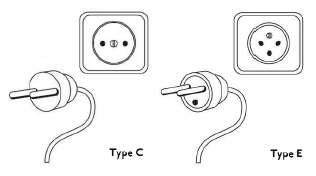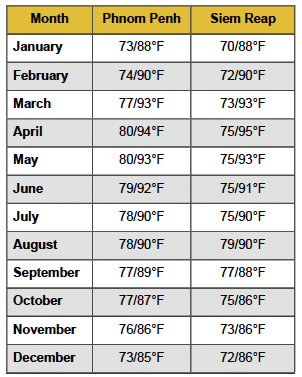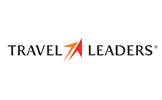CAMBODIA

Fun Facts From Globus Tours
-
-
- Angkor Wat, in the Cambodian jungle, was discovered by French explorers in the 19th century making it the Eighth Wonder of the World.
- Cambodia was under French rule from 1863 – 1953.
- Human settlement in Cambodia dates back 7,000 years.
-
The remarkable Kingdom of Cambodia intrigues, beguiles, and fascinates all who are fortunate enough to make her acquaintance. During its peak from the 9th to 15th centuries, the powerful kings of the Khmer Empire erected the most extensive concentration of temples in the world—the magnificent Angkor complex. Since those days, the country has seen its share of troubled times—from invasion and occupation to civil war and the appalling reign of the Khmer Rouge from 1975 to 1979. Through it all, the spirit of the Cambodian people triumphed, and in the early 1990s, the country began a renaissance. Today, it beckons with its hospitable people, unforgettable sights, and ancient architectural wonders.
VISAS, PASSPORTS, AND OTHER ENTRY REQUIREMENTS
You are responsible for obtaining and paying for all entry documents (visas, etc.) and for meeting all health requirements (inoculations, etc.) as required by the laws, regulations, or orders of the countries you will visit. We cannot accept liability if you are refused entry onto any transport or into any country for failure to carry correct documentation.
A visa for your visit to Cambodia is necessary for US citizens. If you hold a passport from another country, check with your local consulate about requirements for travel to Cambodia.
Cambodia visas can be obtained through an embassy, visa service, or online https://www.evisa.gov.kh/) prior to departing the US. Alternatively, a visa can be obtained upon arrival at the airport in Siem Reap. The embassy or visa service will be able to advise the latest requirements for obtaining a visa.
In general, going through a visa service is more expensive but it offers convenience and peace of mind. If you choose to go this route, we recommend contacting Generations Visa Services (GenVisa), our preferred partner for visa and passport services, at least 90 days prior to departure. GenVisa has a special website and toll-free number. Call 800.845.8968, email info@genvisa.com, or visit their below websites for additional information. Our travelers receive discounted prices and other special services:
- For Monograms, visit: genvisa.com/monograms
- For Globus, visit: genvisa.com/globus
- For Avalon, visit: genvisa.com/avalon
- For Cosmos, visit: genvisa.com/cosmos
All passengers traveling internationally are required to have a passport. Most countries require that the passport be valid for at least six (6) months beyond the conclusion of your trip, so please check the expiration date carefully. It is also recommended you have a minimum of three blank pages in your passport when traveling, as many countries require blank pages. Please carry proper identification (your passport) on you and do not leave it in your suitcase or hotel room. Most countries have laws that require you to carry your passport with you at all times.
COUNTRY CODES
The country code for Cambodia is 855. When calling to Cambodia from overseas, dial your international access code (011 from the US/Canada), followed by the country code, area code, and phone number. Phone numbers in Cambodia are 8-9 digits in length. Dialing from the US/Canada: 011 855 ## ### ####.
CURRENCY
In Cambodia the local currency is Cambodian Riel
-
-
- Banknote denominations: 100, 500, 1000, 2000, 5000, 10,000, 20,000, 50,000
- Coin denominations: 50, 100, 200, 500
-
As a general guideline, bring a variety of payment means, particularly in the event that you have difficulties with your preferred method of payment.
Cash
US dollars are widely accepted throughout Cambodia. Alternatively, if you prefer, you can also exchange US dollars into the local currency.
When paying with US dollars it is important to note that change may be given in the local currency. It is advisable to bring newer US notes that are in good condition as some merchants will not accept those that are tattered and/or old.
ATMs are the most convenient way to obtain money in Cambodia as they are readily available throughout the country and the vast majority of ATMs dispense US dollars. Money exchange services are also available at the airport on arrival and at some hotels.
For the most current exchange rates, please go to our website at Globusjourneys.com/Currency.
Credit Cards
Major credit cards are widely accepted (only Visa & MasterCard on the Avalon cruise) but some shops and restaurants require a minimum purchase amount when using them (so they are not appropriate for incidentals such as ice creams, snacks, etc.). You might consider bringing more than one card, as some outlets may not accept all types. Due to increasing credit card fraud worldwide, be prepared to show identification (i.e. your passport or driver’s license) when making a transaction with your credit card. If you use a credit card for your purchase, most transactions will be debited in the local currency, and your bank will establish the rate of exchange on the debit.
Traveler’s checks
Although a secure means of carrying money, traveler’s checks unfortunately are becoming very hard to use. Due to this we recommend you plan on using cash and credit cards only.
Bank Hours:
Mon. – Fri. 8:30 am – 3:30 pm
Sat. – Sun. Closed
BUDGETING AND SHOPPING
The following budget guidelines are just approximate values or starting values for meals and are per person. Actual prices will vary widely by restaurant and city within a country but below are some averages as provided by our experienced personnel.
-
-
-
- The approximate cost of a soft drink/mineral water/coffee is US $1.
- An average lunch consisting of a salad or sandwich and a soda or water starts at approximately US $3.
- Dinner at a mid-range restaurant with dessert and a non-alcoholic beverage starts at approximately US $25.
-
-
Shopping
Prices are as marked in department stores, though in markets it is customary to barter. Start negotiating with an offer at one-third or half the vendor’s initial price.
Please be warned that if you buy items on tour to be shipped to your home, customs import charges are hardly ever included in the price. Sales tax or GST (Goods & Services Tax) is normally already included on price tags; GST refunds, if applicable, are processed at the departing airport from the relevant country.
TIPPING
It is customary to tip table staff at local restaurants the equivalent of 10% of your bill. A service charge may already be added to the bill, but it likely won’t be passed along to the wait staff.
-
-
-
- For a taxi, pre-negotiate the price before getting in and then round up the fare as tip.
- Tipping hotel staff for bar or room service is at your discretion but if you choose to we recommend US$1 at the most (not including porterage which is included).
-
-
ELECTRICITY AND ELECTRICAL OUTLETS
Outlets
Voltage for outlets is 230V. North American voltage is generally 110V. Some, but not all, hotels feature multi-region outlets that accept different types of plugs. Due to this, for dual voltage electronics, we still recommend you bring an adapter. If you have single voltage electronics (110V) a converter is also required. Bathroom outlets are usually for razors only. The outlets look like:

TEMPERATURES
The climate in Cambodia is dominated by monsoons but in general it is warm or hot year round.
-
-
-
- Warm and dry between November and February
- Hot and dry between March and May
- Hot with some rain between June and August
-
-
Warm with some rain between September and early November. To help you plan, below are average low and high temperatures.

To convert to Celsius, subtract 30, then divide by 2. While not exact, this simple formula will give a close estimation.
FOOD SPECIALTIES
Cambodian, or Khmer cuisine is rich in flavor and known for its simplicity and freshness. Common ingredients include palm sugar, fish sauce, lime, coconut milk, lemon grass, and chilis. The staple for every meal is rice which is prepared in a variety of ways. Fruits and vegetables are also very popular as is fish, due to the fact there is a huge supply from the Mekong River. Popular dishes include the national dish Fish Amok (fish with coconut milk, steamed in banana leaves), Nom Ban Chok (noodles with green curry), and fried whole fish. Dishes are primarily mild with chilis and sauces served on the side for those who want a spicier dish.
Drinking Water
Tap water is generally not safe to drink in Cambodia. For sightseeing and excursions, bottled water may be included; otherwise we recommend you bring bottled water with you from your hotel. Bottled water is also common in restaurants.
CUSTOMS AND CULTURE
Cambodians are generally very easy going and friendly. There are, however a few things that are best to avoid:
-
-
-
- Disrespect to the national religion (Theravada Buddhism) can upset locals. Unlike many faiths, Buddhists open their temples to tourists, permitting the snapping of cameras and invasion of their sacred space. They ask only one thing: that we take our shoes off.
- Try not to point with your feet.
- In the company of monks or elders, never cross your legs.
- Do not touch people on the head or upper body
- When beckoning someone to come over do not flap your hand in the standard Western ‘come here’ motion; instead turn the hand round so that your palm flaps down towards yourself.
- Do not shake hands with monks or nuns as people in general rarely shake hands; rather smile and nod away
- Ladies should never sit down next to a monk.
- Shorts and skirts should be longish (below the knee) for both sexes and it is okay to expose arms when visiting temples. Shoes generally need to be removed. Smoking is common in Asia so locals tend to be less sensitive to issues regarding smoking around others and often ignore “non-smoking” signs
-
-
FEW WORDS OF THE LOCAL LANGUAGE
Cambodian (Khmer):

Good morning/day: Arun sour sdey, Good evening: Sayon sour sdey, Hi: Sour sdey, Please: Som, Thank you: Or kun, You’re welcome: Min el te, Yes: Bat, No: Te, Do you speak English? Neak ni yeay pjea sa angle te?, I don’t understand: Khnom min yold te, How much? Thlay pon man?, 1: Mouy, 2: Pi, 3: Bei, 4: Bourn, 5:Pram, 6:Pram Mouy, 7: Pram Pi, 8: Pram Bei, 9: pram Bourn, 10: Dob, Where is…? Nouv er na…?, Telephone: Tourasap, Bathroom: Bantub tuk, Tea: Tuk ter, Coffee: Kafe, Bottled water: Tuk borisoth dob (carbonated=tuk soda, non-carbonated=peasajak), Cheers! Rik reay!, Have a nice day! Som mean thngay laor!
U.S. DEPARTMENT OF STATE COUNTRY INFORMATION
Additional country-specific information for US citizens can be found on the US Government’s website www.travel.state.gov. Here, you can find the most up-to-date information about destination descriptions, passports/visas, safety and security, transportation, travel local laws, alerts/warnings, vaccinations, and more. For citizens of other nations, we recommend you consult your local consulate for travel information, regulations, and requirements.













